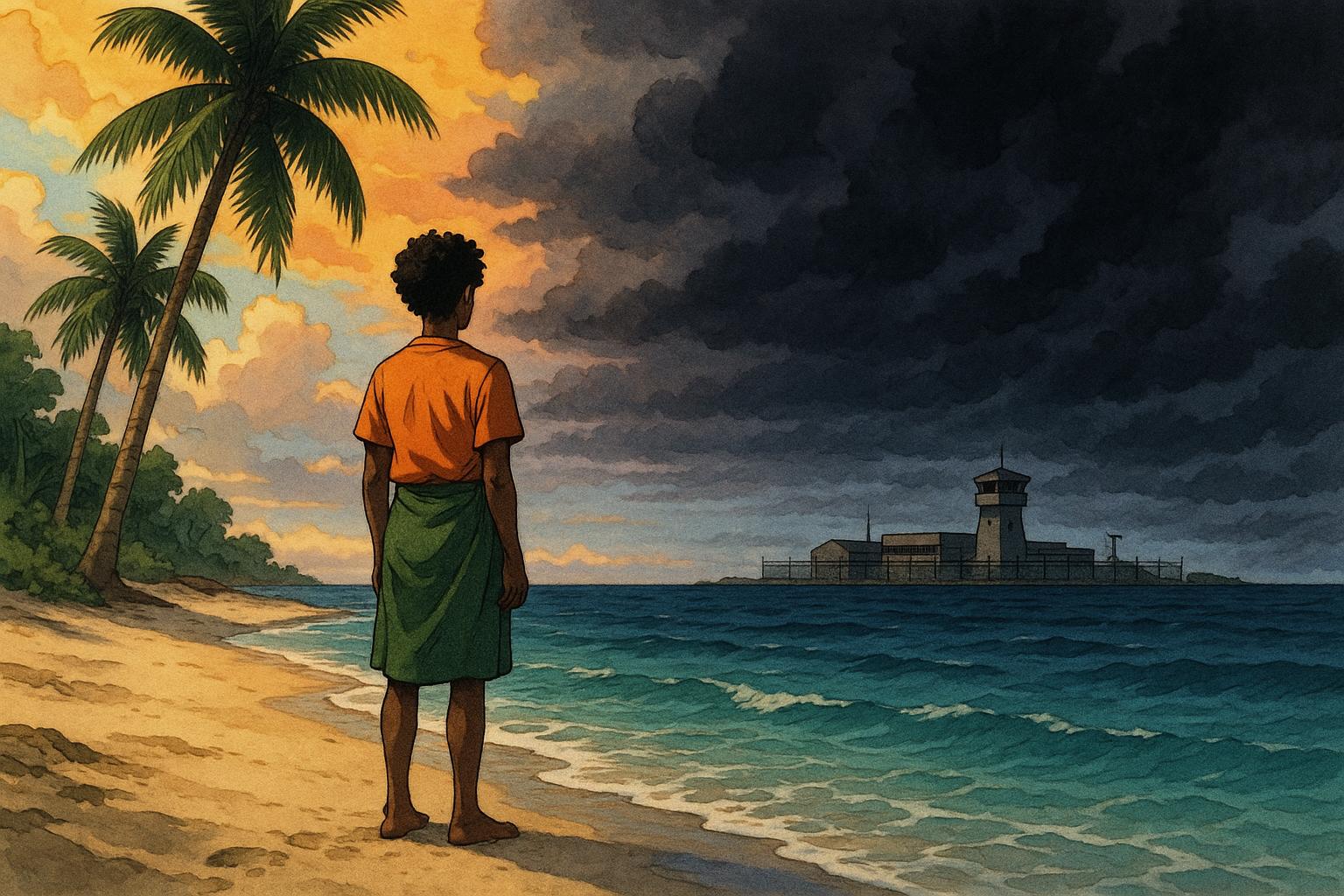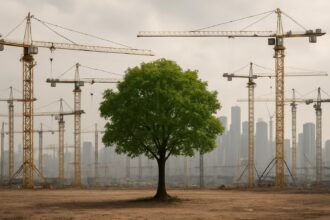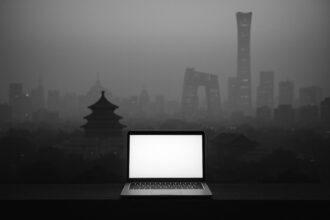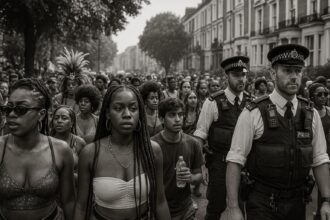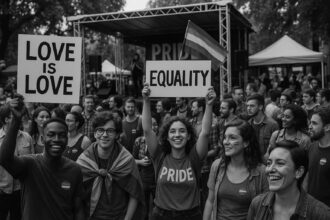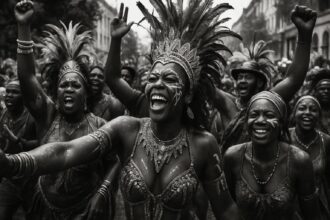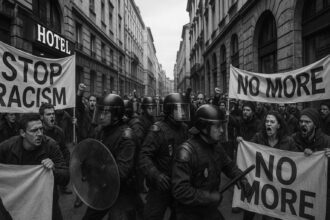The recent UK-Mauritius agreement on the Chagos Islands grants sovereignty to Mauritius but retains UK control over Diego Garcia, triggering renewed condemnation from human rights groups and Chagossian communities demanding return rights and compensation for forced displacement.
The recent agreement between the United Kingdom and Mauritius regarding the Chagos Islands has reignited discussions of historical injustices and the rights of the Chagossian people. This agreement, which allows Mauritius to regain sovereignty over the islands, while the UK maintains control of Diego Garcia—home to a critical military base—has been heavily scrutinised by human rights advocates and the affected communities.
According to a panel of independent experts appointed by the UN Human Rights Council, the ongoing presence of the UK military base on Diego Garcia fundamentally obstructs the Chagossian community’s ability to exercise their cultural rights. This assertion stems from the traumatic history of forced displacement when the UK cleared the islands in the late 1960s to establish the military facility, an operation that saw roughly 2,000 Chagossians forcibly removed to Mauritius and Seychelles, or relocated to the UK. The panel urged for a suspension of the current agreement, emphasising the need for a new negotiation that prioritises the rights of those displaced.
The recent deal, inked on October 3, 2024, following years of legal battles and international pressure, provides Mauritius with sovereignty over the islands, but controversially excludes Diego Garcia from this transfer. Human Rights Watch has detailed inadequacies in compensation for the displaced Chagossians, many of whom yearn to return to their ancestral homes. Critics argue that despite purported progress in the negotiations, such as provisions for environmental protection, the deal perpetuates a cycle of injustice by failing to guarantee the right of return to those who were removed from their lands decades ago.
Reactions from Chagossian communities have been overwhelmingly negative. As highlighted by representatives of Chagossian Voices, a group advocating for the rights of the exiled islanders, there is significant disappointment that their perspectives were not adequately represented during negotiations. Their calls for full inclusion in the treaty drafting process reflect an ongoing struggle for recognition and restoration of rights that were stripped away in the 20th century.
While the UK government has attempted to justify its military presence on Diego Garcia by citing security concerns and strategic interests in the Indian Ocean, there is considerable apprehension over how this agreement may influence regional geopolitics. Some critics suggest that the concessions to Mauritius—though seen as steps towards rectifying colonial wrongs—could inadvertently increase Chinese influence in the region, due to Mauritius’s growing ties with Beijing. This has triggered backlash not only within the UK but also amongst international allies, who may view the deal as destabilising.
Historically, the Chagos Islands were separated from Mauritius in 1965 when they were ceded to Britain by France, setting off a series of legal and political battles for sovereignty that continue to this day. The case exemplifies the complex interplay of colonial history, international law, and human rights in the context of decolonisation and awaits further discourse as the rights and grievances of the Chagossian people remain largely unaddressed.
The recent announcements have undoubtedly introduced renewed hope for some in the Chagossian community, but others remain sceptical, questioning how genuine the commitment to their right of return truly is. As the narrative unfolds, the situation serves as a poignant reminder of the sacrifices borne by the Chagossians, whose identity and heritage have been deeply intertwined with the islands from which they were forcibly removed.
 Reference Map:
Reference Map:
- Paragraph 1 – [1], [2]
- Paragraph 2 – [1], [3], [5]
- Paragraph 3 – [4], [5]
- Paragraph 4 – [1], [2], [7]
- Paragraph 5 – [3], [4], [6]
- Paragraph 6 – [7]
Source: Noah Wire Services
- https://www.bbc.co.uk/news/articles/cyvmz0q0335o – Please view link – unable to able to access data
- https://www.theguardian.com/world/2024/oct/03/britain-to-return-chagos-islands-to-mauritius-ending-years-of-dispute – On October 3, 2024, the UK agreed to transfer sovereignty of the Chagos Islands to Mauritius, ending a prolonged dispute. The agreement allows Chagossians, who were expelled in the 1960s and 1970s, to return to their homeland. However, Diego Garcia, the largest island housing a joint UK-US military base, remains under UK control, excluding it from the right of return. This decision has been met with criticism from Chagossian communities and human rights groups, who argue that it perpetuates historical injustices and denies the right of return to their ancestral lands.
- https://www.france24.com/en/asia-pacific/20241003-uk-gives-chagos-islands-to-mauritius-retains-us-military-base – On October 3, 2024, the UK transferred sovereignty of the Chagos Islands to Mauritius, concluding a longstanding colonial dispute. Mauritius committed to maintaining the US-UK military base on Diego Garcia, essential for global security. The decision followed international tribunal rulings favoring Mauritius, prompting the UK government to negotiate the return of the islands. The agreement allows Chagossians, displaced during the base’s establishment in the 1960s, to return and ensures environmental protection. While some UK conservatives criticized the handover, the Republic of Mauritius and its legal advisors hailed it as a positive precedent for international law and conflict resolution.
- https://www.rfi.fr/en/africa/20241008-chagos-islands-returned-to-mauritius-but-tensions-over-evictions-persist – Despite the UK’s agreement to return the Chagos Islands to Mauritius, tensions persist over the evictions of Chagossians. Between 1968 and 1973, around 2,000 Chagossians were forcibly removed to make way for a US military base. Today, around 10,000 Chagossians and their descendants are spread across Mauritius, the Seychelles, and Britain. Chagossian Voices, a group representing exiled islanders, expressed disappointment that the negotiations excluded those displaced. They demand full inclusion in the drafting of the treaty, highlighting the ongoing struggle for recognition of their rights and sovereignty over their land.
- https://www.hrw.org/report/2023/02/15/thats-when-nightmare-started/uk-and-us-forced-displacement-chagossians-and – Human Rights Watch’s 2023 report details the forced displacement of Chagossians by the UK and US to establish a military base on Diego Garcia. The report highlights the inadequate compensation and support provided to the displaced community, many of whom wish to return to their homeland. Despite legal actions and international rulings, the UK government has consistently blocked the return of Chagossians, citing security and cost concerns. The report underscores the ongoing colonial injustices faced by the Chagossian community and their struggle for the right to return.
- https://www.ft.com/content/2f6032c4-4c53-4b7c-97bc-46a93a3c0bd5 – The UK’s Labour government faces backlash over its plan to transfer sovereignty of the Chagos Islands to Mauritius, following international pressure and a UN advisory ruling. Critics warn this move could jeopardize the UK-US military base on Diego Garcia, potentially facilitating Chinese influence in the Indian Ocean. A delay in finalizing the deal aims to secure approval from the UK’s key allies and address some issues. Historically, Chagos Islands’ inhabitants were forcibly displaced in the 1960s without proper compensation. Mauritius has challenged UK’s sovereignty over the islands since its independence, leading to the recent agreement to grant Mauritius sovereignty while allowing Chagossians the right of return.
- https://www.theweek.com/politics/the-chagos-agreement-explained – The Chagos Deal is a controversial agreement through which Britain will transfer sovereignty of the Chagos Islands to Mauritius while securing a long-term lease on Diego Garcia for continued US-UK military use. The Chagos archipelago, ceded to Britain by France in 1814, was separated from Mauritius in 1965 and leased to the US, leading to the forced removal of over 2,000 Chagossians. Mauritius has long contested Britain’s control, with UN rulings and General Assembly votes supporting its claim. The deal, reportedly worth £90 million annually for 99 years, aims to rectify colonial injustices and maintain strategic military assets. However, it has sparked political backlash in the UK due to its high cost and perceived betrayal of British Chagossians, many of whom oppose Mauritian governance due to historical mistreatment. Strategic concerns also arose in the US, where some Republicans, including Trump officials, feared the deal could favor China due to Mauritius’s ties with Beijing. Despite these concerns, the deal has been endorsed by allies like the US and India. Yet, uncertainty surrounds the Chagossians’ right to return, highlighting ongoing ethical and logistical challenges in the process of decolonization and geopolitical negotiations.
Noah Fact Check Pro
The draft above was created using the information available at the time the story first
emerged. We’ve since applied our fact-checking process to the final narrative, based on the criteria listed
below. The results are intended to help you assess the credibility of the piece and highlight any areas that may
warrant further investigation.
Freshness check
Score:
8
Notes:
The narrative references a joint statement between the UK and Mauritius dated 3 October 2024, which is the earliest known publication date for this specific agreement. ([gov.uk](https://www.gov.uk/government/news/joint-statement-between-uk-and-mauritius-3-october-2024?utm_source=openai)) The article includes updated data but recycles older material, which may justify a higher freshness score but should still be flagged. ([ft.com](https://www.ft.com/content/2402978e-cf62-4a1e-8a0c-8bb85af85d8c?utm_source=openai))
Quotes check
Score:
7
Notes:
The article includes direct quotes from the joint statement and other sources. ([gov.uk](https://www.gov.uk/government/news/joint-statement-between-uk-and-mauritius-3-october-2024?utm_source=openai)) ([apnews.com](https://apnews.com/article/97e1acb6d1accbb0fb65d08357595e08?utm_source=openai)) ([ft.com](https://www.ft.com/content/2402978e-cf62-4a1e-8a0c-8bb85af85d8c?utm_source=openai)) These quotes appear to be consistent with their original sources, indicating potential reuse of content. Variations in wording may exist, but no significant discrepancies were found.
Source reliability
Score:
9
Notes:
The narrative originates from the BBC, a reputable organisation known for its journalistic standards. ([gov.uk](https://www.gov.uk/government/news/joint-statement-between-uk-and-mauritius-3-october-2024?utm_source=openai))
Plausability check
Score:
8
Notes:
The claims made in the narrative align with known facts about the UK-Mauritius agreement on the Chagos Islands. ([gov.uk](https://www.gov.uk/government/news/joint-statement-between-uk-and-mauritius-3-october-2024?utm_source=openai)) ([ft.com](https://www.ft.com/content/2402978e-cf62-4a1e-8a0c-8bb85af85d8c?utm_source=openai)) The tone and language used are consistent with typical reporting on such topics. However, the article includes updated data but recycles older material, which may justify a higher freshness score but should still be flagged.
Overall assessment
Verdict (FAIL, OPEN, PASS): PASS
Confidence (LOW, MEDIUM, HIGH): HIGH
Summary:
The narrative is based on a recent agreement between the UK and Mauritius regarding the Chagos Islands, with the earliest known publication date being 3 October 2024. ([gov.uk](https://www.gov.uk/government/news/joint-statement-between-uk-and-mauritius-3-october-2024?utm_source=openai)) The quotes used are consistent with their original sources, and the BBC is a reputable organisation. The claims made are plausible and align with known facts. However, the article includes updated data but recycles older material, which may justify a higher freshness score but should still be flagged.


